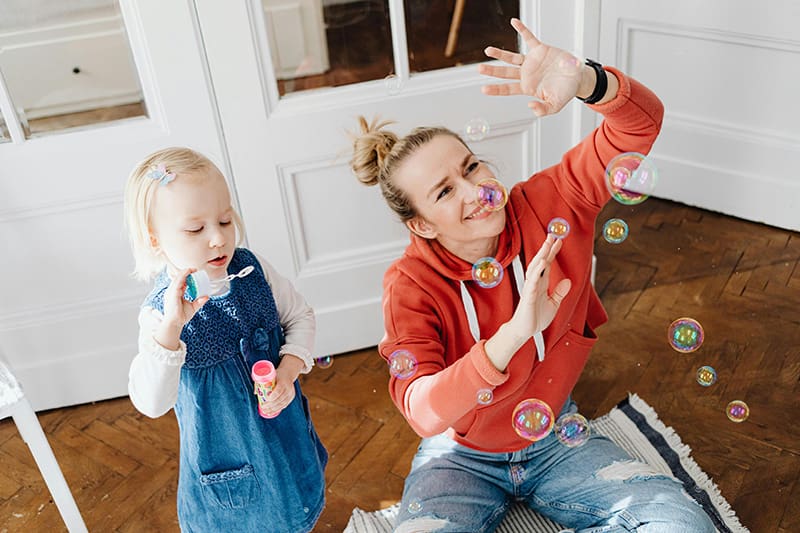Is your child struggling with social-emotional interactions, communication, or sensory processing? DIR/Floortime therapy might be the key to unlocking their potential. This play-based, child-led approach fosters deep connections and builds crucial developmental skills. In this guide, we’ll delve into the world of DIR/Floortime, exploring its principles, benefits, and how you can implement it at home to support your child’s growth.
What is DIR/Floortime Therapy?
DIR/Floortime, also known as Developmental, Individual Differences, Relationship-Based therapy, is a holistic approach designed to enhance a child’s development. It operates on the fundamental belief that a child’s emotional connection with their caregivers is essential for cognitive, social, and language development. Unlike traditional therapies that focus on specific skill deficits, DIR/Floortime emphasizes building relationships and following the child’s lead to create a natural and joyful learning environment.
Core Principles of DIR/Floortime:
- Developmental Levels (D): DIR/Floortime recognizes that every child develops at their own pace. Therapists and caregivers assess the child’s current developmental stage to tailor interventions accordingly.
- Individual Differences (I): Children have unique strengths, challenges, and interests. DIR/Floortime celebrates these individual differences and uses them as a foundation for learning.
- Relationship-Based (R): The heart of DIR/Floortime is the relationship between the child and their caregiver. Therapists and parents actively engage with the child, fostering a sense of security and trust that encourages exploration and growth.
How DIR/Floortime Works:
- Follow the Child’s Lead: Observe your child’s interests and let them guide the play. Join their world, and build upon their natural curiosity.
- Create Shared Attention and Engagement: Engage in activities that capture your child’s attention. This could be through imitating their sounds, playing with their favorite toys, or simply following their gaze.
- Challenge and Expand Play: Once you’ve established a connection, gently introduce new elements or ideas to the play. This helps your child expand their skills and explore new possibilities.
- Open and Close Circles of Communication: Respond to your child’s communication attempts, both verbal and nonverbal. Expand upon their ideas and encourage them to express themselves.
- Celebrate Every Achievement: Recognize and celebrate your child’s efforts, no matter how small. This positive reinforcement strengthens their confidence and motivation.
Benefits of DIR/Floortime Therapy:
- Improved Social-Emotional Skills: DIR/Floortime helps children develop empathy, self-regulation, and the ability to build meaningful relationships.
- Enhanced Communication Skills: The therapy fosters both verbal and nonverbal communication, leading to richer interactions.
- Stronger Sensory Processing: By engaging in various sensory experiences, children can better understand and respond to sensory input.
- Increased Engagement and Motivation: The play-based nature of DIR/Floortime makes learning enjoyable and motivating for children.
- Empowered Caregivers: Parents and caregivers gain valuable insights into their child’s development and learn effective ways to support their growth.
Implementing DIR/Floortime at Home:
- Create a Safe and Engaging Play Space: Designate an area where your child can freely explore and play.
- Set Aside Dedicated Play Time: Schedule regular, uninterrupted time for focused interaction with your child.
- Be Present and Playful: Get down on the floor and enter your child’s world. Be silly, laugh, and have fun together.
- Tune in to Your Child’s Cues: Observe their body language, facial expressions, and vocalizations. Respond to their needs and interests.
- Embrace the Mess: Allow your child to explore different textures, materials, and sensations.
Seeking Professional Guidance:
While you can implement DIR/Floortime principles at home, consulting with a qualified therapist can provide valuable guidance and personalized strategies. Chicago Speech Therapy offers specialized DIR/Floortime services, and their team of experienced therapists can help you create a customized plan for your child.
DIR/Floortime therapy offers a unique and powerful approach to supporting your child’s development. By embracing play, fostering connection, and celebrating their individuality, you can unlock their full potential and pave the way for a brighter future.












